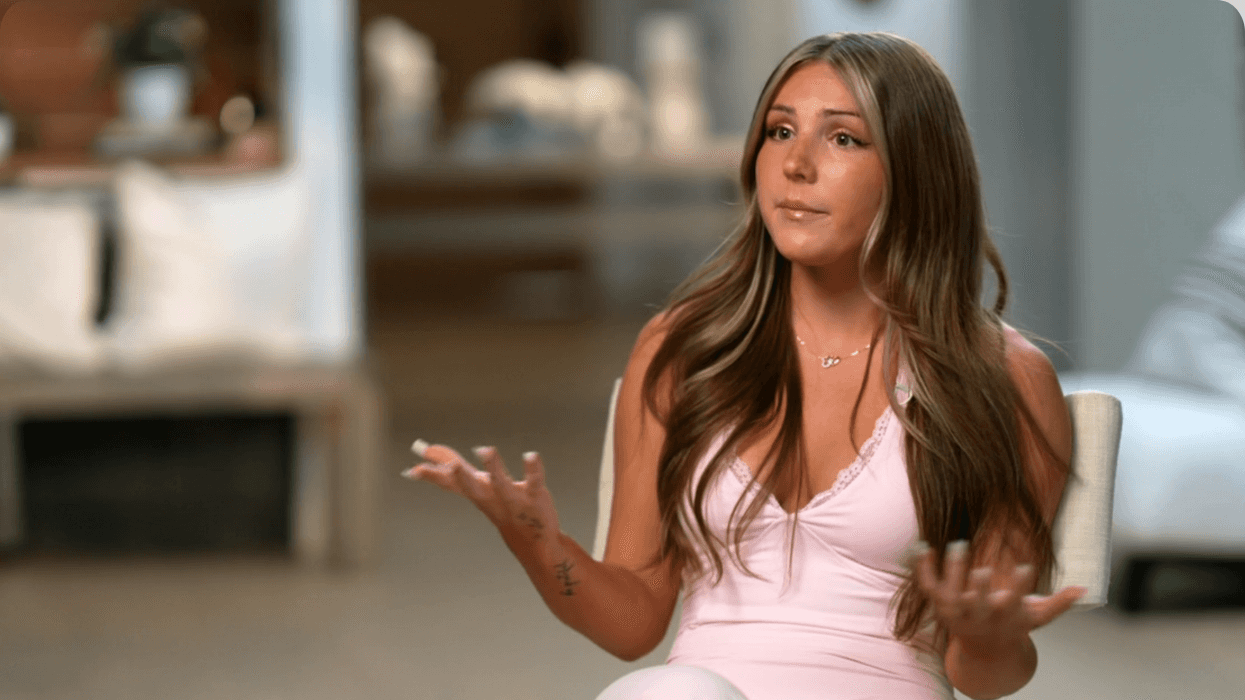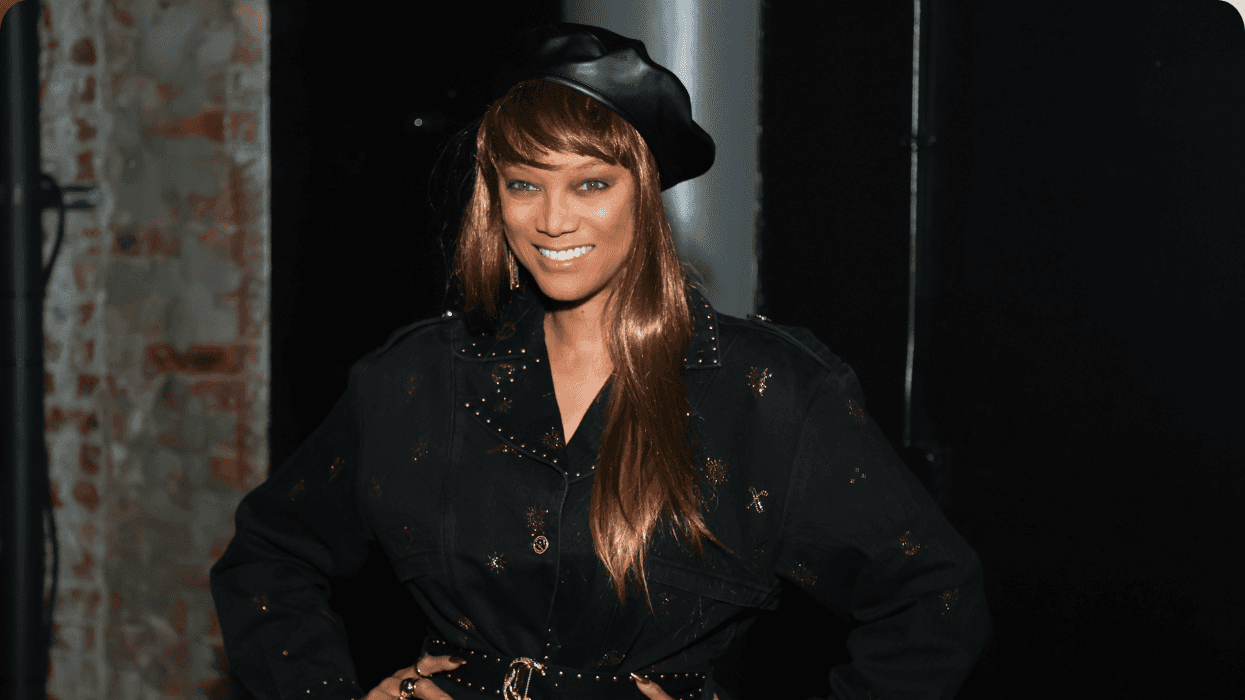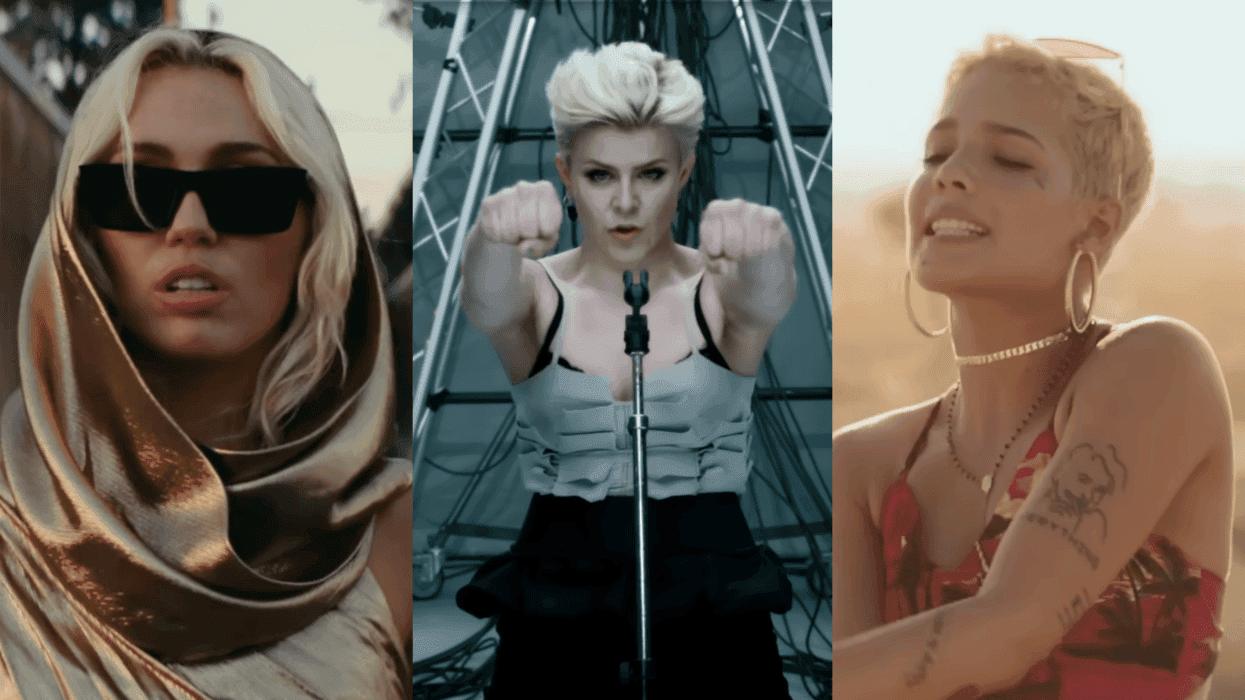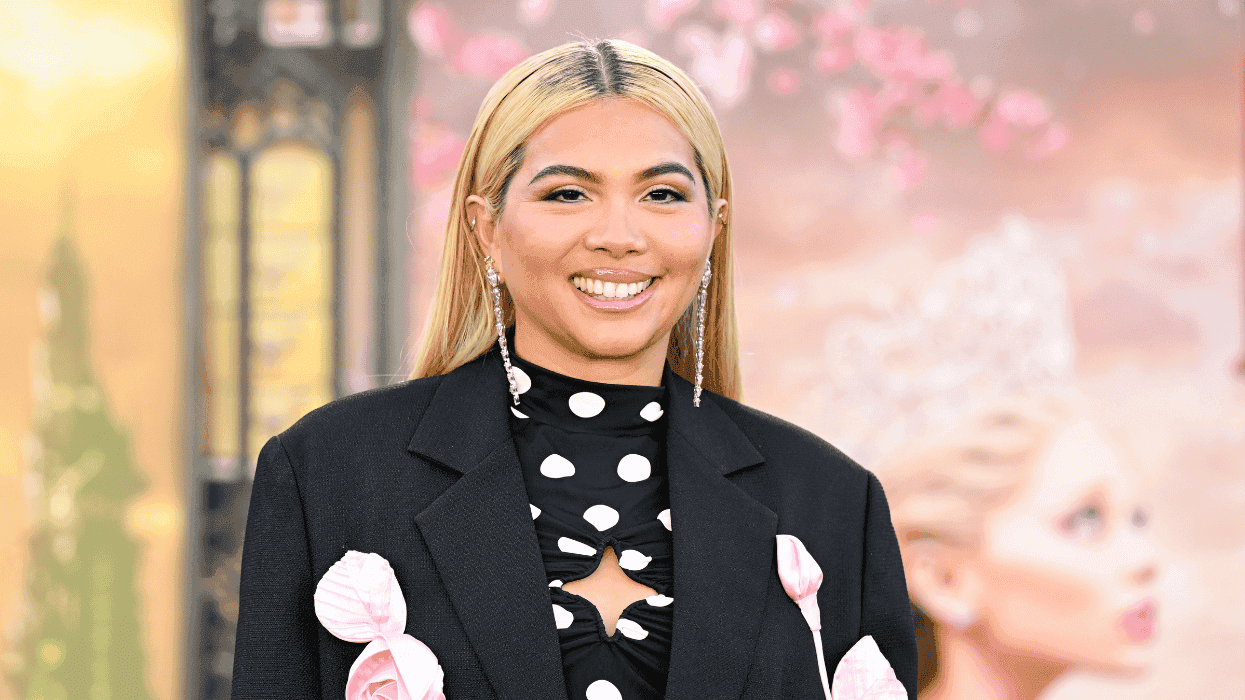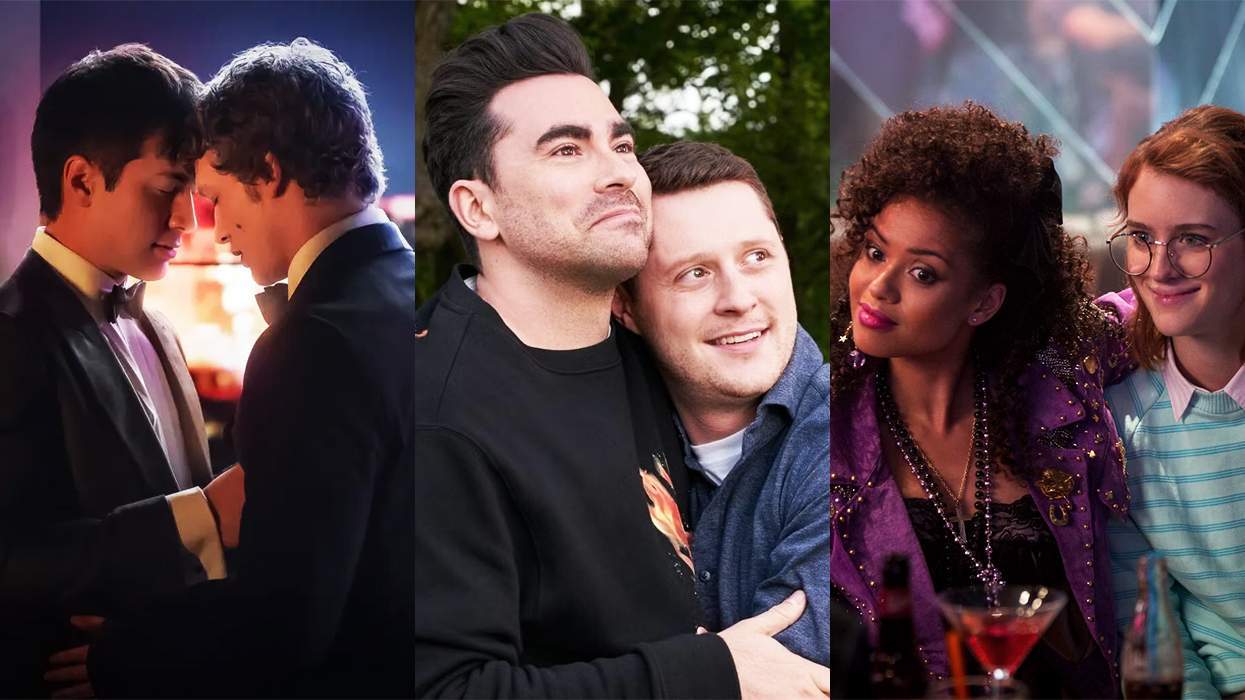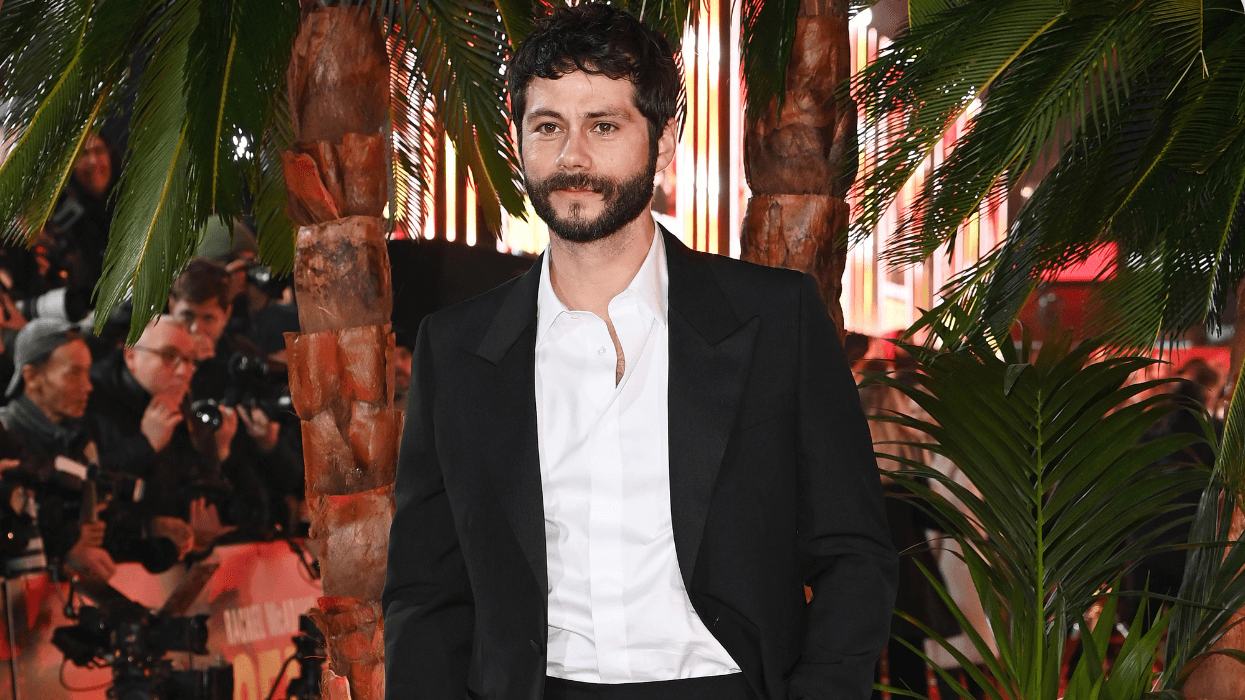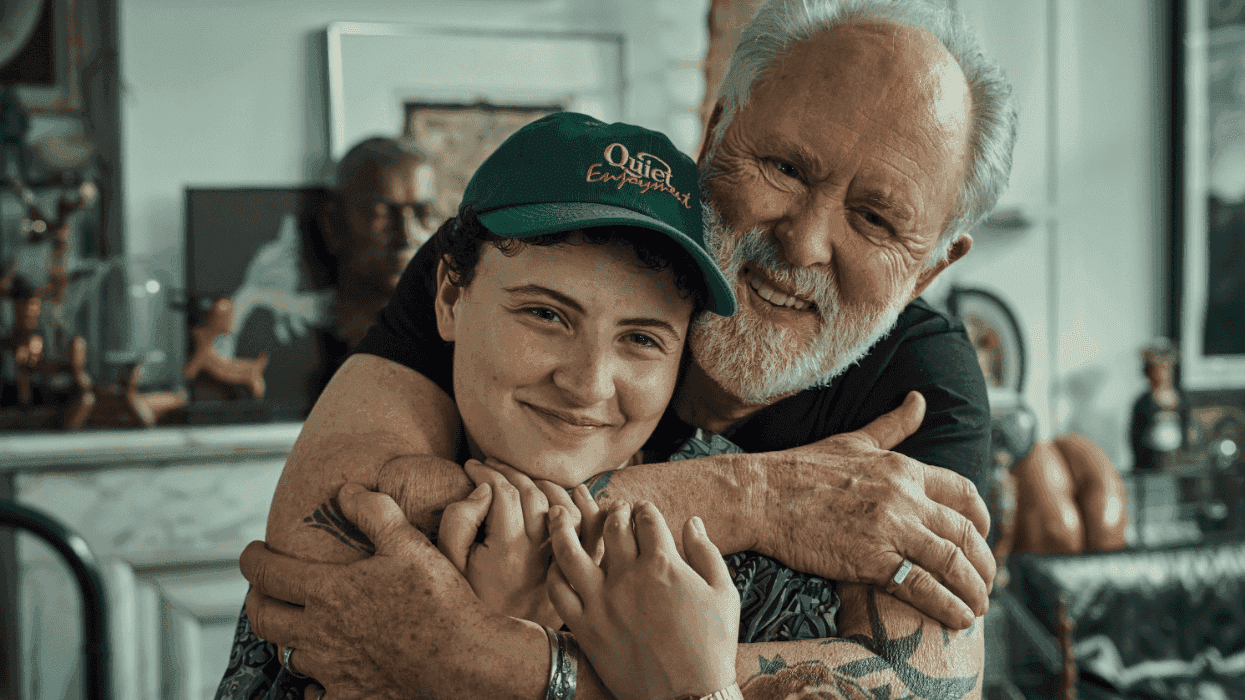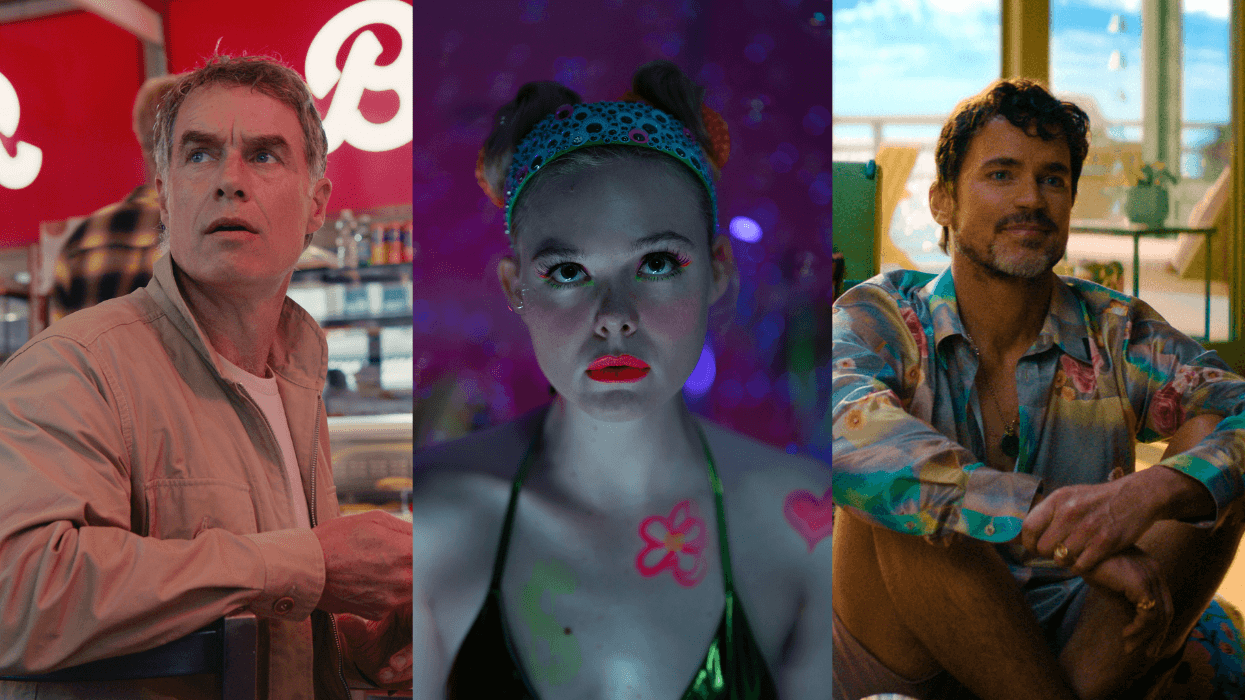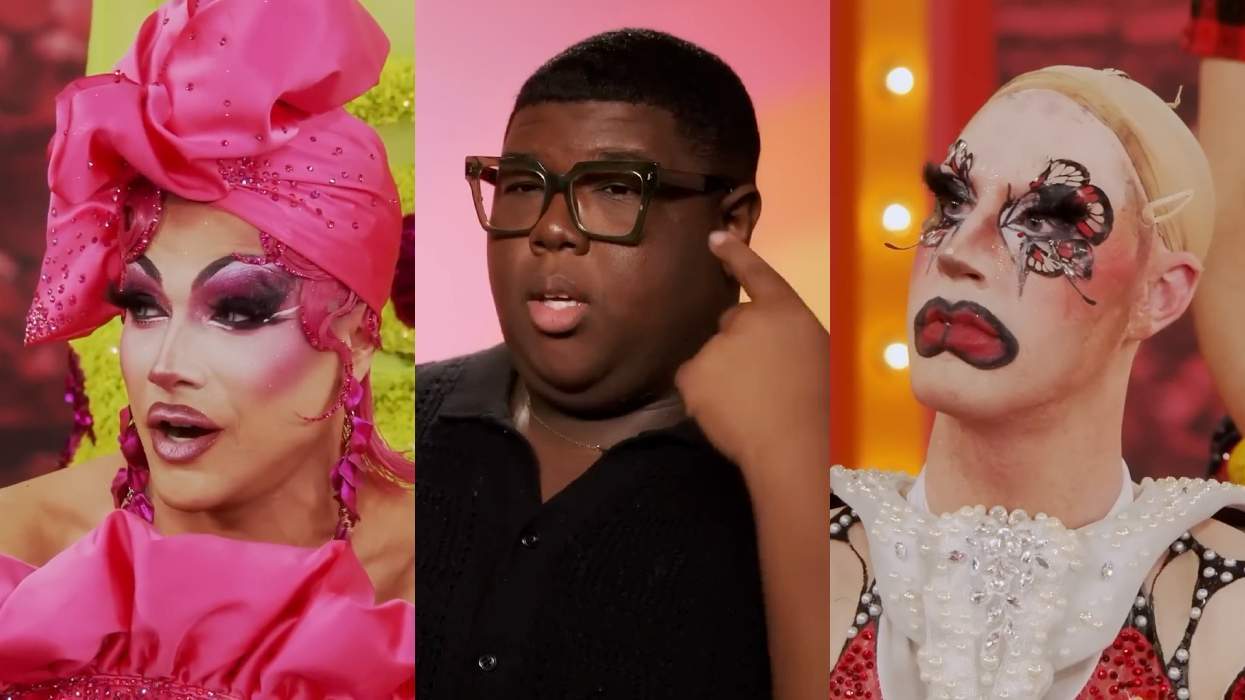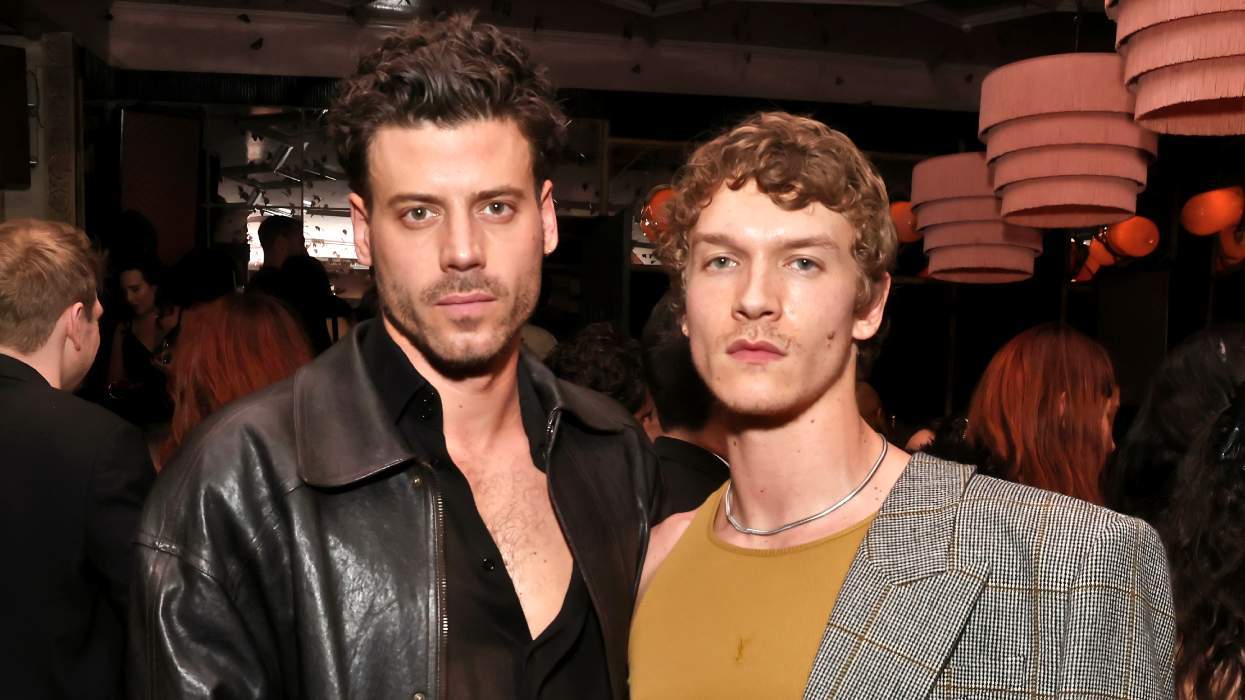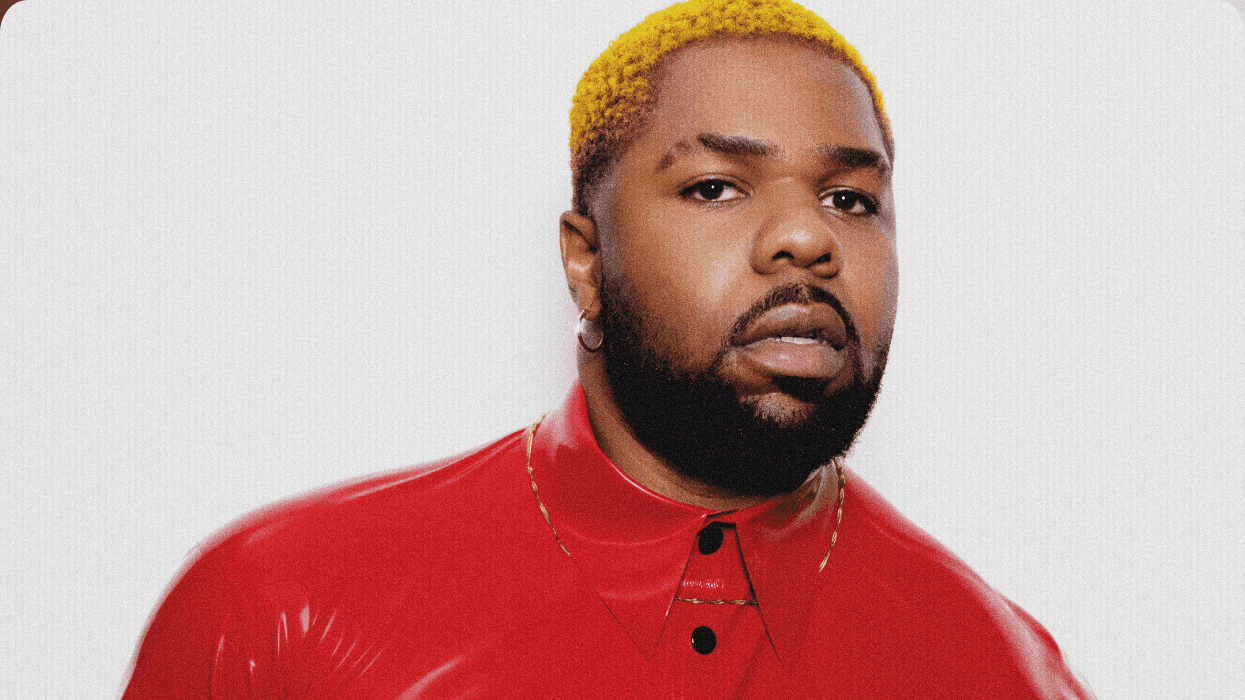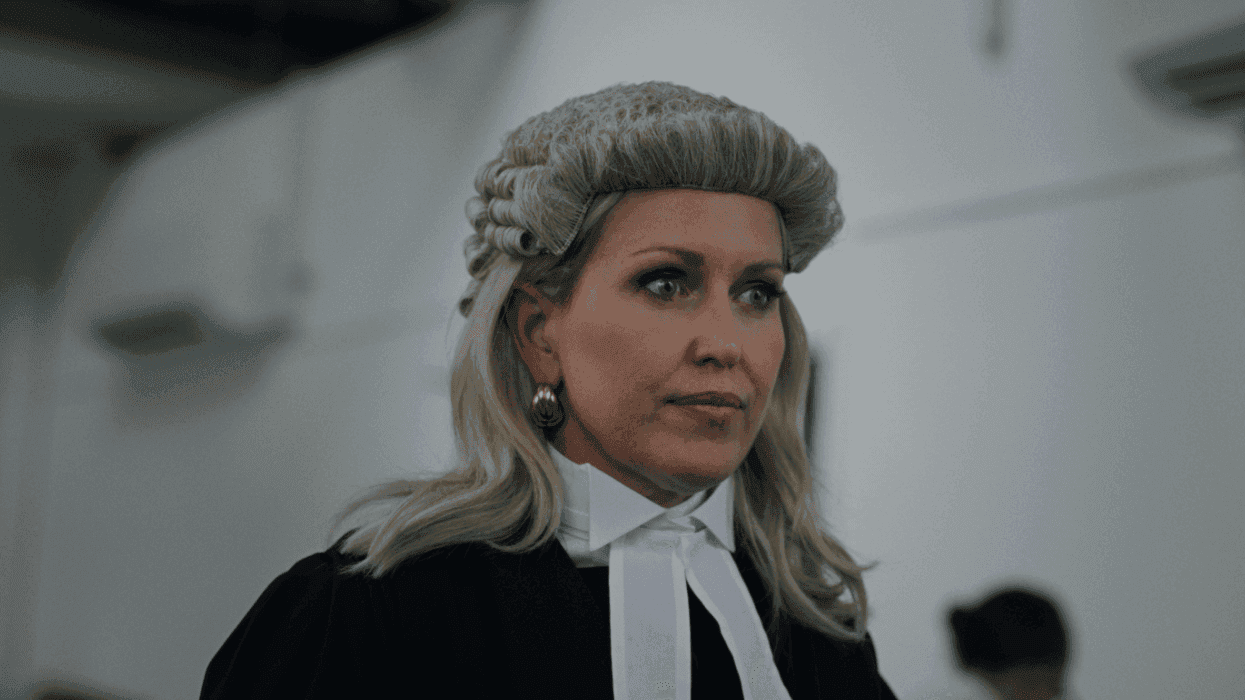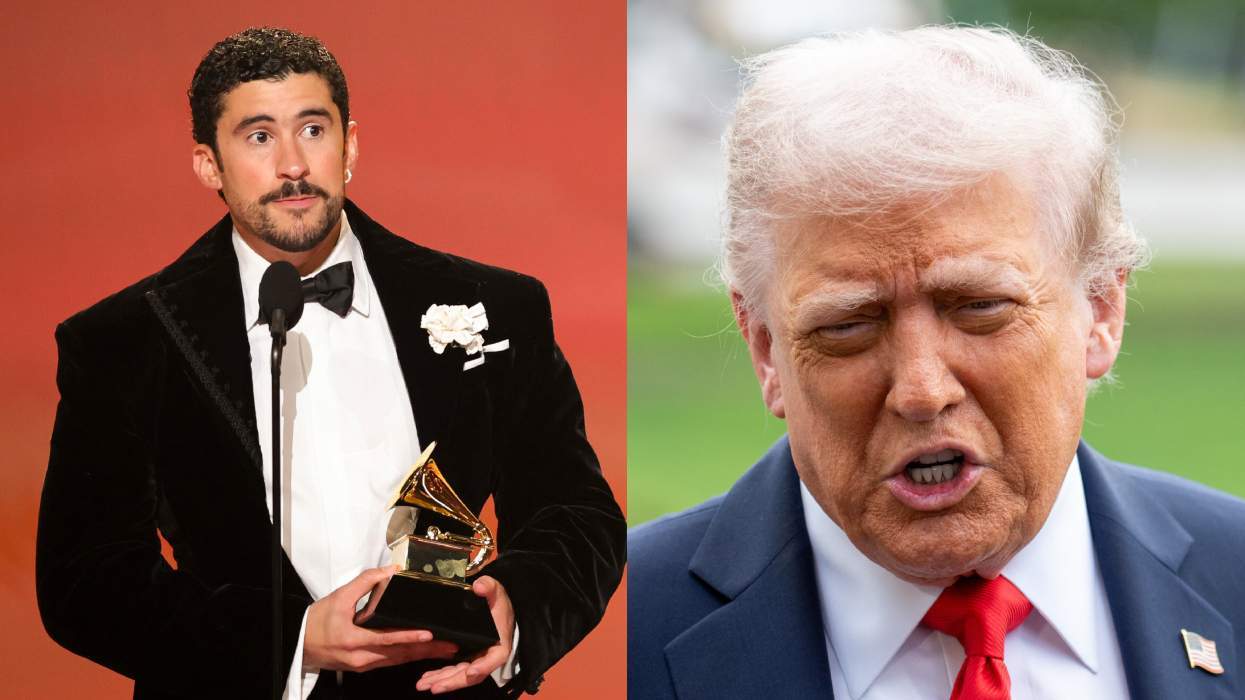Meet the Owens from Alabama. Morris is a professor in New England, gay married and brother to two sisters. Ellen, the oldest, is a poet, very wealthy, mildly separated from her successful husband and the family drama mediator. Bonnie is the much younger wild child who took a shot at acting in New York, failed, returned home to care for their dying father and suddenly decided to marry a young preacher. Well, Morris and Ellen must intervene and see about this Bonnie and her evangelical hubby but that means, much to their chagrin, returning to Alabama and the house that didnt exactly fill them with warm fuzzies. The interactions between Morris and Pastor, gay man and homophobe, brother and brother-in-law, are truly fascinating. Pastor even tries to introduce him to an ex-gay, a homo-turned-Christian-hetero to show him the possibility of moral salvation. We talked with McFarland about all these juicy issues and more.
Out: There seems to be a lot of Yankee vs. Rebel tension in the book. Where do you stand?
Dennis McFarland: Well, I guess I kind of stand with one foot in both places. I grew up in Alabama in the heart of Dixie, but left the south and have spent most of my adult life elsewhere in California, New York and New England. My family is all still down there and I continue to go back for visits, but I never feel like I quite belong in either place. And Im very aware of the different kinds of conflicts that exist regionally when Im down there and that was one of the seeds for this novel.
I think I can imagine having a strange perspective on the place where you come from and the place where your family has stayed.
Oh yeah, well I identify with the gay character, Morris. When I was writing about his feelings for the south they were very close to my own the dread of going back, the fear of what I will encounter there. You know, in New England I dont find that I bump up against people who think very differently from the way I think. Its one of the things I think about when Im on my way down there for a visit. Often the people that I bump up against are people in my own family, which kind of loads it down.
Pastor seems intriguing for gay men on many levels, chiefly that he seems like a dreamboat.
Yeah, well, I wanted to make that part of the tension. I wanted to make him attractive so that would add a little something of tension to the situation.
Specifically between he and Morris, right? Why do that?
Well, I wanted to do it because Im always interested in finding things to add tension because thats what we really enjoy whether its on the stage or in a novel we like conflict. But I also just kind of stole it. When I conceived this book I was reading and re-reading the novels of E.M. Forster. His first novel is called Where Angels Fear To Tread in that novel a family member travels from Italy and makes a marriage to, horror of horrors, an Italian. And this is aristocratic English society, so two other family members rush off to Italy to rescue her from this marriage and one of the things that happens there is that the Italian fellow that shes married has this kind of erotic charisma. And of course all very under the surface. But its one of the things writers do; we steal from other writers, especially dead writers. If Morris is going to be in some kind of conflict with Pastor, it just complicates things that he finds him physically attractive. So its just to make it a little more complicated.
And I like Morris because in a way hes a very logical and levelheaded character. Hes smart and educated and he doesnt let his emotions get the best of him. So many gay characters out there are sassy divas with comebacks.
Well, Im pleased that you said that. Youre always walking a fine line between writing characters who are somehow recognizable in terms of their type, but trying to be careful that they never become stereotypes. I think that Morris has a kind of ironic wit that we often associate with a certain kind of gay man. And thats recognizable and if he was only that then he would be in much more danger of becoming a stereotype. But what I tried to give him in addition to that ironic wit is a big heart and a willingness to at least explore the building of bridges. What happens with these characters is they all come together with expectations of what theyre going to find in each other and they find something different instead. And that, too, is what E.M. Forster is up to all the time in his novels taking people from different parts of society and watching would play out between them.
So you wanted to make Morris unrecognizable in that sense?
Well, I didnt want to make him unrecognizable but I wanted to avoid making him a stereotype. And I was really working hard in this book to be fair to everybody. Because I obviously have certain feelings about the issues involved here. I wanted to give everybody equal time and so I didnt want to make Morris always right and Pastor always wrong, and I didnt want Pastor to have stuff to learn from Morris and Morris have nothing to learn from Pastor. I thought a lot about his character as I was going along but I really liked him and I think that was important. I also wanted to have him be married, you know, because we live in Massachusetts and were very proud to live in the first state to allow gay marriage. This was part of the origin for the book. On this trip that I made down south, I was still trying to figure out what this book was going to be about. I went to the church that my parents had always gone to and it was a really weird experience for me because it was a different kind of worship service than any other that Im accustomed to. It was one of those mega-churches with the television screen, the jazz combo, were used to a much more traditional environment but I tried to keep myself open-minded and I had my family with me, my daughter was with me. Then it came to the sermon I dont even remember what his sermon was about but pretty quickly it veered off into moral relativism and he gave one example of how the world is going downhill, morally. Which was that there was now a state in our country that believes that marriage is something other than the union between one man and one woman. That was his one example and at the time I thought, Ah ha! Thatll be my conflict. Ill have a gay married man from Massachusetts come into contact with a southern evangelical preacher.
You dont always get to read much about gays and their relationship to or their understanding of spirituality. And I dont think Morris was very spiritual but was open-minded to people going to church or the function it served for people.
Thats right. And I think that the question of Morris spirituality is one of the things thats on the table for him in the book. Theres a scene early on where his partner, Richard, is encouraging him to go fishing with him because he says that he needs to get a spiritual life. I think of him and I think he displays it in the book; he seems very educated in a way about spiritual matters. He knows a lot about the bible but hes a little bit of an intellectualized person. One of the directions that he moves over the course of the story is in the direction of at least looking at what might be going on with him spiritually.
When I think about gays and spirituality for some reason I think about gay republicans but I wonder, do you think gays can be really spiritual and have a deep connection to a church?
I think I understand why youre asking the question. The first answer is, obviously, well of course. But I think youre asking the question because, at least in Christian terms, well I guess in most of the major religions terms, a gay person who is embracing a religion is going to be brought into conflict with who he is because his religion is going to teach him that who he is is wrong or a sin. And I dont know a lot about it, but I think that gay people of all kinds of political persuasions have been struggling with this for the last few decades and theyre trying to solve the problem in different ways. And a lot of those, it seems to me, are within the context of a traditional religion. I know gay people who have stuck to the Catholic church despite the teachings of the Catholic church because their feeling is, number one, its where they belong in some way, they feel it viscerally. And number two, theres an interest in trying to change it from within. I think its challenging but, why not? And religion has changed throughout the ages and I think were in a moment right now, in modern society, where a lot of Christian communities have stopped being traditionally homophobic and are trying to love the homosexual out of his sexuality. Its a kind of hate the sin but love the sinner approach. But of course thats not going to work for everybody. And the marriage thing is really putting that right up on the surface so that people are talking about it and arguing about it. And I think there are people out there who are trying to come to terms with it, straight people within their spiritual community and within themselves. There are a lot of genuine Christians who just dont have a problem with it and Im one of those. To me its just a clear civil rights issue.
Well, I ran with that in my head when I was reading it of course. I was thinking of husband and husband holding hands in the pew and that was a difficult image for me to conjure. But I dont see why not as long as they dont become a gay marriage protester or something like that.
I think thats the thing that baffles me the most about the so-called ex-gay. Im a kind of live and let live guy and I think that if somebody is experiencing a terrible conflict and they seek to resolve it by choosing not to act out their homosexuality and pursue a heterosexual lifestyle instead and it makes them happier, I dont feel like anybody has the right to tell them what theyre doing is wrong. But the part of the movement that baffles me is the political arm of it where they feel that they need to support anti-gay legislation. I just dont get that. Its like another form of saying The way that Im living is the only right way and everybody should be living the way that Im living. It seems to me there is some confusion between sexual orientation and sexual addiction. That there was some kind of prevailing model of what it meant to be a homosexual which was that it meant to live a sordid lifestyle of multiple sexual partners and so forth. That that was the dominant model of the homosexual lifestyle.
One thing I find fascinating not only in gay fiction but in movies and films as well, the approach to depicting sexual scenes is that there needs to be some confirmation of that graphic sexuality being there. But its a fine line between trash and legitimate novels with gay characters. Did you think at all about that? There wasnt much sex in the book.
Well, Im not really that kind of writer but I was very aware. Theres this thing about when you put a man and a woman in a room together theres a certain level of sexual tension assumed because theyre alone in a room together. When you have gay characters it seems to me that youre obliged to acknowledge that as well, if theres two men alone in a room together and one of thems gay or one of them isnt and it doesnt mean that anythings going to happen its just an acknowledgement of human personality and that there is some sexual tension present or could be. So I was aware of those kinds of issues when I was writing, putting my guys in the bedroom together and theres a scene near the end of the book where its suggestive that theyre fooling around sexually, but I think I know what you mean about how when we encounter gay characters that theyre never just characters who happen to be gay but somehow their sexual proclivities have to be a part of the picture. You know, I think part of that sort of acknowledges, at the heart of it, part of what homophobia is really all about. That people cant get their mind out of the gutters. That theyre actually thinking about what this person does theyre looking at this guy sitting at an office desk but what theyre thinking about is what hes doing at home or something. I think theres a piece of homophobia that is very much focused on the real hard-core sexuality part of it. People dont often acknowledge that because it sounds too crude, but I think that in fact its there.
So then in a way maybe, to combat homophobia, a work of serious gay fiction needs to not necessarily downplay the sexual proclivities but perhaps might paint a picture of them as vanilla and like any other straight relationship.
I think thats right. Its a balancing act. But I think that you dont want to clean things up too much so that it makes it acceptable for people who might otherwise be repelled because theres something dishonest about that. Its like people always say that phrase, and I encounter this in the south a lot, as long as its not in your face. And I think, Well, what does in your face mean? It means I dont mind knowing that this person is gay as long as I dont have to see him doing something gay unless its like fixing a womans hair or something. Those are all forms of staying in your place, right? So I think when people say In your face what theyre really saying is I dont mind gay people as long as they stay in their place. I think when you cross a certain line youre probably writing for a gay audience, but its a balancing act.
I was going to ask you about Pastors character, his attractiveness and his relationship with Morris. I thought you did a good job creating a mystery around him, his youth, his background and almost creating the possibility that he had had gay thoughts himself at one point. There was that scene with the strange man in town who bought beer for young guys and would get them drunk and suck them off. Pastor almost did it but he changed his mind. I dont know if it was compulsory to add to his mystery and attraction but I think it helped.
Well, Im glad you think it helped. For me, one of the things that I feel like has to be explored is the nature of Pastors homophobic feelings. And he is one of these modern Christians that I referred to earlier, who really strongly believes in loving the sinner but hating the sin, and trying to persuade, through love, the sinner away from the sin. And one of the things that Morris sudden presence in his own family does is that hes got to look at all this stuff. It seems that you can ride along very happily with your feelings about things and your beliefs about things until theyre challenged by real life. And a lot of the people who have very strong feelings about homosexuality and what the bible says about it have never even met a homosexual. When it happens it moves it on to a new plane, and in the course of exploring what all this means for Pastor, somehow the presence of having a real, genuine bona-fide gay person in the house makes him think Oh yeah, there was that time when I was young Your question about gay thoughts, I mean, I suppose if you think about sexuality as being a spectrum with absolute 100% straight people being on one end and absolute 100% gay people being on the other end and everybody else somewhere on the line in between, I would guess, and I think sexuality studies support this, that there arent very many straight men who havent had gay thoughts. So I think, there again, because Morris is there, it makes him think about that stuff. It doesnt mean that hes gay or that hes thinking about having sex with Morris now. Its that having Morris there makes him think about that stuff.
Right, however unpleasant that might be.
And, you know, hes a good person, I think. Hes a good man. Hes young but when he recognizes in himself that something is unpleasant he has to look at why is that unpleasant to me? Why does it feel that way to me? So there again, that was an example of how I was trying to be fair to all the characters. I really didnt want to make him a stereotype either, the sort of bible thumping evangelical preacher with prejudiced views about everything. I wanted to make him a questioning person because it seems to me that most people in real life that we end up having the most respect for are questioning people.
Search
Latest Stories
Sign me up!
See what's new and hot in queer entertainment, in your inbox three times a week.
@2026 PUBLISHING INC
ALL RIGHTS RESERVED
ALL RIGHTS RESERVED
By continuing to use our site, you agree to our Privacy Policy and Terms of Use.
The Latest
More For You
Most Popular
Load More
@2026 PUBLISHING INC
ALL RIGHTS RESERVED
ALL RIGHTS RESERVED



